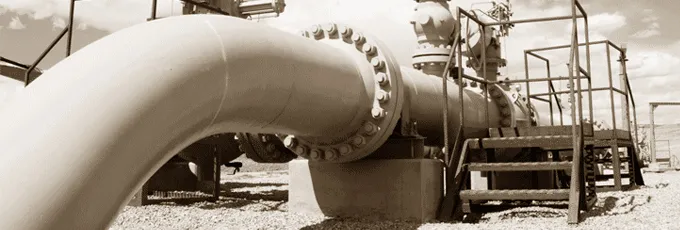With rapidly growing economy, Turkey has become one of the fastest growing energy markets in the world. Turkey has been experiencing rapid demand growth in all segments of the energy sector for decades. Turkey’s energy strategy is multi-dimensional. It strives at diversifying its energy supply sources and routes, as well as its energy basket by increasing the share of the renewable and adding the nuclear energy. Besides this renewable potential, turkey is geographically very close to world’s most important and potential gas reverses so that hosts many pipeline projects.
Turkey, which produced 47 billion cubic meters of natural gas on its own in 2013, relies on contracts with gas suppliers such as Iran, Russia, Azerbaijan, Algeria and Nigeria to feed its soaring need.
Turkey’s natural gas consumption in 2011 reached to 40 billion cubic meters. Today, Turkey’s daily gas need is met from Russia: 48 million cubic meters, Iran: 30 million cubic meters, Azerbaijan: 20 million cubic meters, west pipeline: 42 million cubic meters, Marmara Ereglisi: 20 million cubic meters and 17 million cubic meters from natural gas storages in the country. By 2010, a full 16.4 percent of Turkey’s energy consumption came from natural gas. Currently industrial use composes 25 percent of natural gas consumption in Turkey.
Turkey is also becoming a destination for spot LNG to fill the gaps in supply. Private companies were licensed as of summer 2013, and nowadays one firm started to import. Government’s significant strategy is to terminate the domination of BOTAS which wholly state-owned company in the natural gas market. Government also aims to make Turkey an international natural gas market by planning to become not only a transportation bridge between east and west pipelines but also a player who markets and sells the natural gas to European countries. The government's main policy is to liberalise and deregulate the oil and gas sectors in accordance with EU regulations, international organisations' regulations for example World Trade Organization, and Turkey's obligations under bilateral or multilateral treaties for example under the United Nations Framework Convention on Climate Change.
In Turkey; gas imports, trade, transmission and storage services are monopolized by a public company of BOTAS. By Natural Gas Market Law which came into force in April 2011, several areas of the sector opened up to competition. After this law, BOTAS’s monopoly right has ended; therefore, other companies may start to obtain separate licenses for import, production, transmission, storage, wholesale, export and distribution of the natural gas. However, currently BOTAS has a monopoly on natural gas transmission network.
There is no a restriction on production of gas or import-export levels, but several following regulatory bodies are involved in policy making and monitoring the sector;
- Ministry of Energy and Natural Resources (MENR): MENR is responsible for preparing and implementing high-level energy policies and strategies.
- General Directorate of Petroleum Affairs (GDPA): this body has a main policy of utilization of oil and gas sources in an efficient and expeditious manner by promoting the contribution of national and foreign market player. GDPA is responsible for setting the national policy for petroleum affairs and granting oil and gas exploration licenses.
- Energy Market Regulatory Authority (EMRA): EMRA is an independent regulatory authority which aims to set forth in its founding documents as to ensure the development of financially sound and transparent energy markets operating in a competitive environment. EMRA is a public corporation with administrative and financial autonomy and has its own budget.
Law enforcement is prepared to the several regulations such as license regulations, tariffs regulations, certificate regulations, distribution and customer services regulation, internal installment regulation, network code regulation, facilities regulation and preliminary research and investigation procedures track and the natural gas market control principles about the regulations.
The physical process of natural gas trade consists from production / import, transmission, storage, distribution and retail activities. There are standard terms which have to exist in a wholesale agreement such as minimum purchase guarantee, tariffs, purchase or pay, make up or carry forward. Master Sales Agreements ("MSAs"), natural gas supply agreements between producers and suppliers, agreements between end-users and suppliers.
According to the Natural Gas Market Law, the free consumers are able to determine their natural gas supplier freely. Accordingly, they do not have to purchase a bundled product from a single provider.


